The British lawyer's justice teams record the war crimes of Putin's army in the Mykolaiv region
- News of Mykolaiv
-
•
-

- Alisa Melik-Adamian
-
•
-
17:00, 03 June, 2024
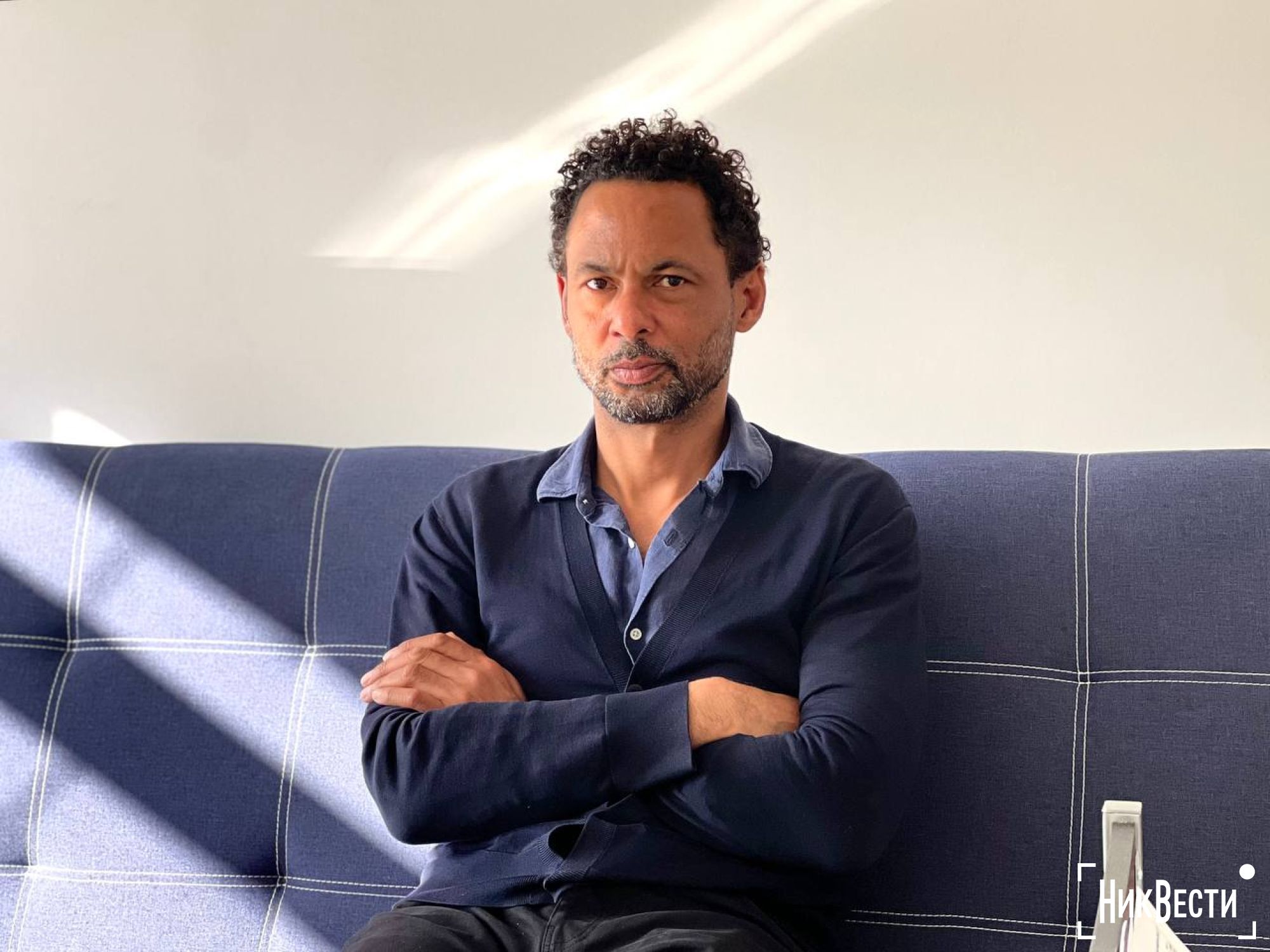 Wayne Jordash, royal attorney, president of the Global Rights Compliance Foundation, photo: NikVesti
Wayne Jordash, royal attorney, president of the Global Rights Compliance Foundation, photo: NikVestiWayne Jordash is a Crown attorney originally from Britain. One of the most famous lawyers specializing in international humanitarian law.
He has been investigating war crimes committed by the Russian army in Ukraine for almost 10 years. Since the beginning of the full-scale invasion of the Russian Federation, he has introduced mobile teams of justice, which help in the investigation of the regions affected by the aggression.
Shelling, torture, sexual violence, child abduction, collaborationism — the names and number of crimes committed in the occupied Ukrainian territories are astounding. It is necessary to investigate them. But if foreign specialists are involved in the cases, it will be easier, says Wayne.
The NikVesti correspondent spoke with the president of the Global Rights Compliance Foundation to find out whether it is realistic to bring the Russian military to justice.
Wayne Jordash came to Ukraine in 2015. The field of his work at that time was the occupied Crimea and Eastern Ukraine.
«I have been working as an international lawyer for the past 20 years. During this time, I worked at most international tribunals, in particular at the International Criminal Court. We founded Global Rights Compliance in 2014. I wanted to apply the experience I gained in the national jurisdiction. In 2015, I came to Ukraine to support the Prosecutor General's Office and the investigation in the investigation of international crimes committed on the territory of Crimea and in the east of Ukraine. During this time, from 2015 to 2022, we engaged in various types of activities, in particular, we cooperated and worked in the Prosecutor's Office of the ARC (Autonomous Republic of Crimea, — note), and also conducted trainings for these prosecutors and for prosecutors of the Prosecutor General's Office,» says Wayne Jordash.
Since the start of the full-scale invasion, he has expanded the team. Today, there are 50 specialists whose activities are aimed at providing support and consultation to the Office of the Prosecutor General and regional prosecutors' offices, and, if specific, to war crimes countermeasures departments.
In particular, the team managed to establish a close relationship with the Mykolaiv Regional Prosecutor's Office. The team studied some of the proceedings and advised law enforcement officers in their approach to interrogations.
«One of these branches of activity was the assistance and support of the Office of the Prosecutor General in the creation and development of a strategy regarding the investigation of sexual violence related to the conflict. It was also a support in developing a strategy for investigating crimes against the environment and crimes against children. And in the regions, our activity is also very diverse, it is partly reviews of proceedings, materials that were prepared by the regional prosecutor's offices. In Mykolaiv, we have very close and good cooperation with the local regional prosecutor's office and the head of the war crimes department. We supported them in several areas, in particular, in revisions of proceedings and specific recommendations, such as support in advice, in better approaches to questioning witnesses and victims. As well as support and advice on how to build complex proceedings against the highest levels of command of the Russian Federation. Of course, investigations are carried out by local investigators and prosecutors. However, where they ask for support and involvement, we try to practically help as much as possible,» adds the lawyer.
The team consists of foreign Ukrainian specialists. Some people are in Mykolaiv, but they are not engaged in direct collection of evidence. «We're behind the scenes,» says Wayne Jordash, attributing the effectiveness of justice teams to a combination of local and international expertise, not the work of any one person.
«We have a part of the team in Mykolaiv that is here regularly. We do not collect evidence and conduct investigations ourselves. Investigations are primarily carried out by investigators and prosecutors. We are behind the scenes and provide support where it is needed. And this is an important part of how we work, because regional judges and prosecutors lead this direction, and our task is to help them, not occupy their field of activity. This is an important point, on which I would like to emphasize that local investigators and prosecutors really want to deal with these cases, to carry out investigations. And it is also very important that they feel that they are in control, and not that we are trying to take over their functions, because that is in no way our goal and our mandate. We go on stage when we are asked to. And the very essence of mobile justice teams, and in our opinion, the effectiveness of this project, is that we try to combine local and international expertise and experience, because this is how we can achieve the result,» adds Jordash.
The cooperation of the foundation with the prosecutors of the Mykolaiv region began more than a year ago. The main cases that lawyers in the Mykolaiv Oblast are faced with today are indiscriminate shelling and crimes committed during the occupation.
«You know firsthand that attacks are frequent incidents in Mykolaiv and the Mykolaiv region. And, of course, these are crimes that were committed under the conditions of occupation. Part of the Mykolayiv region was occupied, and various crimes related to the improper treatment of the civilian population were investigated in this territory. We were engaged in both review of proceedings and support regarding the prioritization of proceedings, that is, what should be the focus of attention.»
According to the royal lawyer, cases related to cooperation with enemy troops in the occupied territories are quite difficult. «The question of collaborationism is not black and white,» says Jordash.
«This is a very difficult question. It is necessary to refer to the Ukrainian legislation, because it depends on how cases related to collaborators will be investigated. Another very big question is the general definition of the term collaborator. What do we mean? What criteria do we pay attention to? For example, do we consider a person who during the occupation delivered a Russian humanitarian aid for the Ukrainian population a collaborator or not? There are cases in which the situation is more clear. For example, if a person is proven to have directed fire at civilians, then everything is clear here. But if we are talking about the occupied territories during the occupation, then there can be different types of communication, behind which there is a question whether this behavior should really be criminalized. For example, will or should the behavior of a teacher who stayed to teach at school (we are talking about teaching children according to the Ukrainian curriculum, — note) be criminalized because, firstly, she needed money, and secondly, she felt that it was her duty to continue teaching children even under occupation. The issue of collaborationism is not black and white. Although in Mykolaiv Oblast, I worked the least with cases related to collaborators. Again, I am a foreigner, and I fully understand that in certain aspects it is easy for me to speak while the Ukrainians have to decide,» the specialist believes.
Patience is the key to war crimes investigations, says Wayne Jordash, reflecting on the prospect of punishing the Russian military. Soldiers, commanders, senior military leadership. Jordash is quite skeptical about whether and when these people will appear in court.
«Let's say, I would be very surprised if at some point Ukraine was able to get access to all criminals, in particular I am talking about the highest levels of command. It may not happen soon, but patience is key in investigating crimes. There are thousands of criminals responsible for serious war crimes. Most likely, at the end of this process, many will be disappointed because it will not be a huge number of people who will be responsible. The political will must provide the International Criminal Court with the resources to arrest Russian military officials. In my opinion, the best approach to the situation now is to build quality and strong proceedings so that they stand the test of time. We are talking about two main trends that are being observed. The first is crimes during the occupation: wrongful detention, murder, torture, sexual violence related to the conflict. And the second direction, and such a regularity, are, in fact, shelling,» says the lawyer.
In particular, an equally important issue for Ukraine — reparations — depends on political will. After all, the problem is not fixing the losses, but forcing Russia to pay.
«It is necessary to use the embodiment of universal jurisdiction (universal jurisdiction is a special international legal mechanism that gives other countries the right to investigate crimes committed in Ukraine, — note), that is, to make it possible for third countries to investigate war crimes independently. The Hague has a register of damages caused by a full-scale invasion. It is starting to work and it is expected that it will be a mechanism that will enable the process of compensation and providing reparations to Ukraine. In simple words, this is a register in which damages and the value of damaged property are recorded. And again, it depends on political will, because it is one thing to fix the cost and another to make Russia pay. The process of researching the issue of aggression in The Hague is also beginning. And this, after all, is the political will to say: «Russia, you will not be able to avoid responsibility for all the crimes you have committed and the damage you have caused. And this requires political will to make this process work,» says the lawyer.
Here, Wayne Jordash specifically mentions the example of Iraq's military invasion and occupation of Kuwait in 1990-1991. The country completed reparations to the emirate two weeks before Russia invaded Ukraine, paying the final $52.4 billion to individuals, companies and governments.
«It is difficult for me to imagine a scenario in which, upon conclusion of the agreement, Europe and Western countries in general will say that we forget about all the damages that Russia caused to Ukraine, and we simply write them off. When Iraq invaded Kuwait, just a few years ago, Iraq was able to pay for the losses. Therefore, it is a matter of time. In this conflict, it was only a small part of the damage, compared to the amount of damage caused by Russia. Therefore, it will be a long process. But this process can start even earlier. In particular, it is possible to use frozen Russian assets. It could potentially be 300 billion. It is difficult to talk about the payment of reparations before the end of the conflict, but the alternative option is long legal processes. And since we're talking about hundreds of billions of dollars, that's years of litigation. If the countries of the West will not insist on receiving reparations, bringing the perpetrators of war crimes to justice, then they will violate international law, they have an obligation to ensure its observance,» says Jordash.
Although today, in the matter of supporting Ukraine, Europeans find themselves between what they should do and what they don't want, says the lawyer. After the war of 1939-1945, the West got used to a peaceful life, but they still haven't come to the realization of the risks and possible repetition of the world war.
«I would say that they are rather at the stage of denial. On the one hand, they try not to notice that the war is happening and that it will continue. And in this sense, they are getting tired of this war. On the other hand, it seems to me that there is a widespread understanding that the war is short. And this follows at least from the fact that conversations have now begun in Europe about mobilization, about increasing the protection of budgets, about increasing support. But there seems to be such an internal struggle in their thinking between what they should do and what they don't want to do. Europe is used to an easy and peaceful life. Therefore, it is difficult to return it to the reality in which the war is close. This does not apply to all of Europe, the Baltic countries understand it better than anyone else. The rest will need time to come to this understanding,» Wayne Jordash summarizes the conversation.
Alisa Melik-Adamian, NikVesti
Recent news about: War crimes


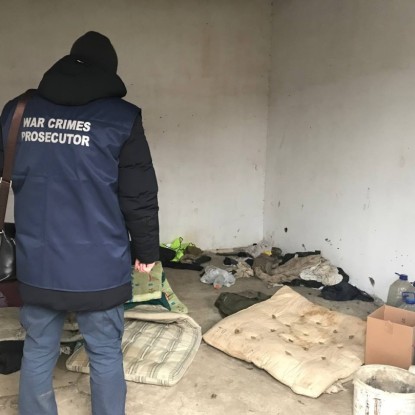
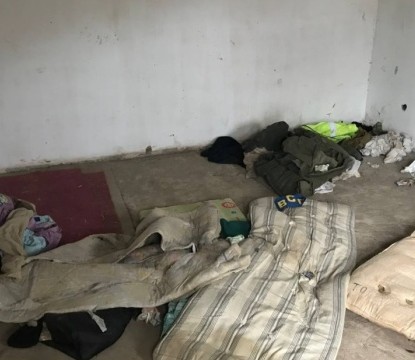
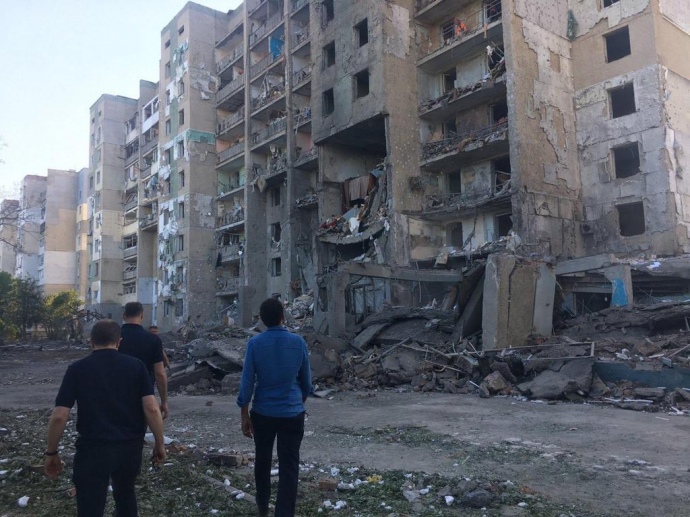
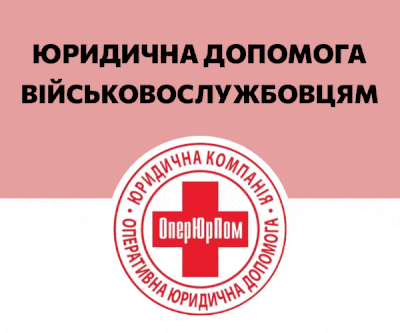
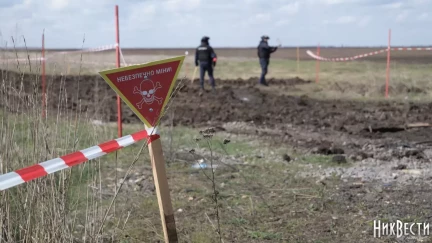

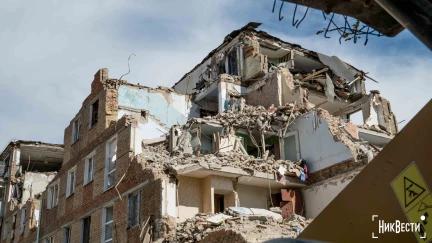

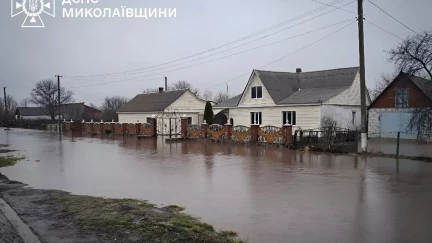
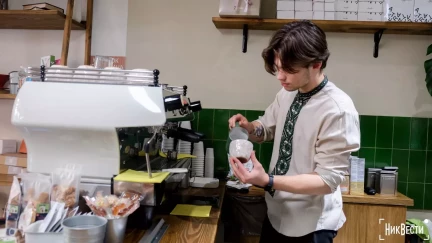

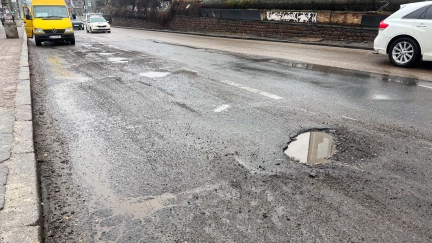
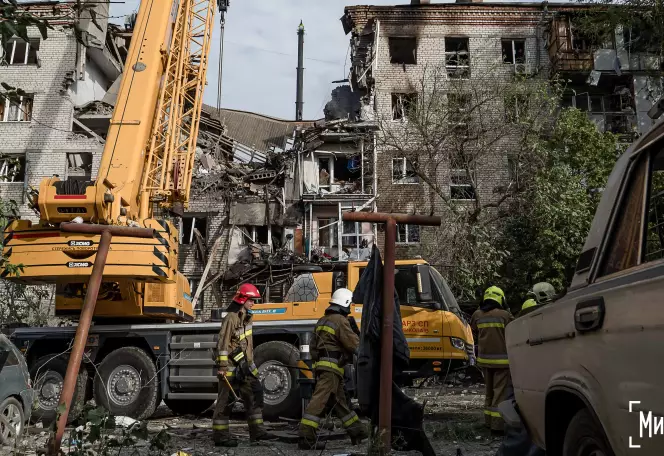
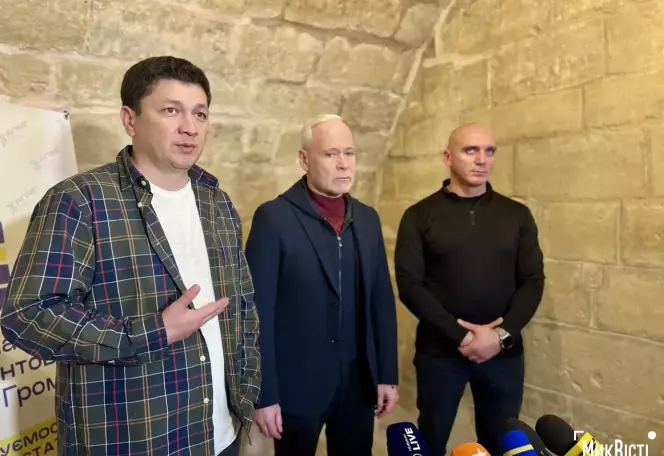
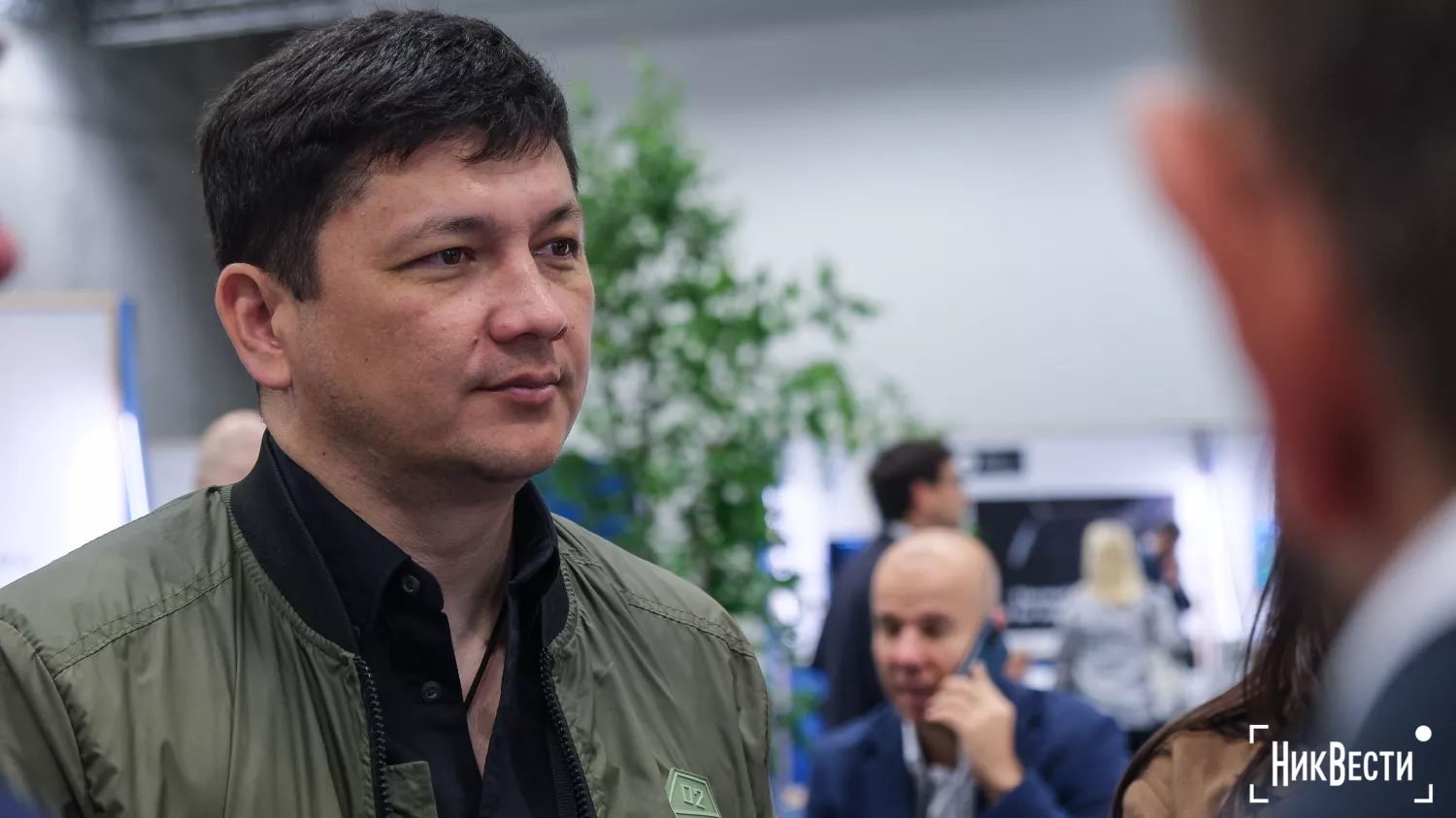
To join the conversation, please log in to the NikVesti website.